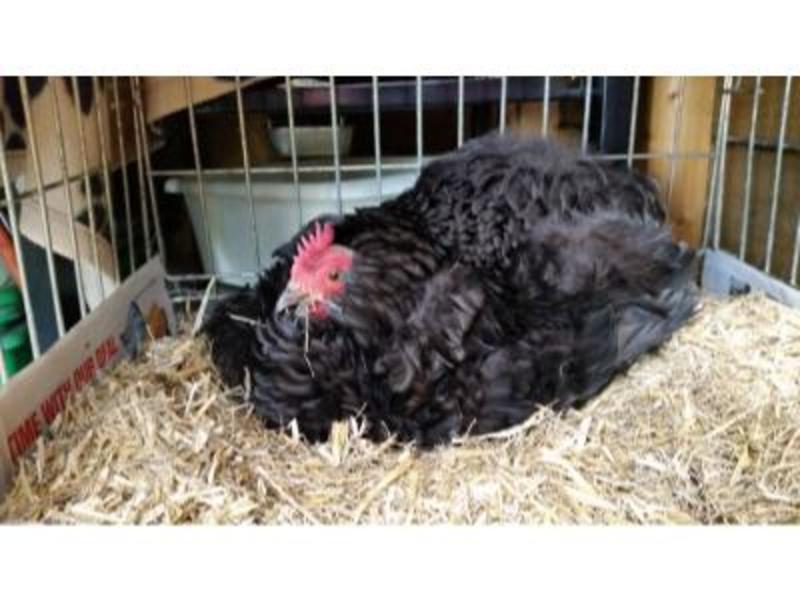Director Robin Creighton, who also holds the post of Honorary Veterinary Surgeon for the Poultry Club of Great Britain gives an update on the current avian flu outbreak, the continued advice on how to protect your own birds and the disease spread through contact with wild birds.
At the time of writing this there have been 4 cases in wild birds and 2 cases in domestic poultry of the highly pathogenic avian influenza H5N8.
At the time of writing this there have been 4 cases in wild birds and 2 cases in domestic poultry of the highly pathogenic avian influenza H5N8.
Unfortunately it is now present in our own wild birds, to what extent we do not know yet. From the widespread location of positive birds it suggests the virus could be present throughout the UK. Due to the large number of cases throughout Europe it would also suggest we could remain in this situation for a considerable amount of time.
Therefore at this point it is impossible to know how many cases there will be and for how long this will go on for.
For individuals, heightened biosecurity is essential. All birds should be housed as long as good welfare allows. The wild birds which cause the greatest risk of domestic poultry are waterfowl (in particular ducks and geese) and gulls.
Avian influenza is spread through close contact with an infected bird or through their faeces. This is why even housed birds can become infected, e.g. faeces from infected wild birds can be accidentally brought in on the owners shoes into their hen house.
If birds cannot be housed due to welfare grounds - take as many steps as possible to reduce contact with wild birds, for example:
- netting the top of the runs to prevent wild birds from getting in
- moving the drinkers and feeders indoors, into the bird house / shed, so the wild birds cannot feed and drink from them
- keep the indoor drinkers, feeders and laying boxes near the door of the house, so they can be accessed without walking through the house - this allows topping up and egg removal from the house / shed without the need to step inside and risk bringing in contaminated material
- if this is not possible have a disinfectant foot bath at the entrance to the shed.
FOR THE PRESENT TIME I WOULD ADVISE YOU NOT TO BRING ANY BIRDS ONTO YOUR PREMISES AND NOT TO SHARE ANY POULTRY EQUIPMENT FOR OTHER POULTRY KEEPERS.
YOU SHOULD AVOID VISITING OTHER PEOPLES POULTRY. IF THIS CAN NOT BE AVOIDED ENSURE ALL VISITORS USE A DISINFECTANT FOOT BATH BEFORE AND AFTER LEAVING THE PREMISES.
IF YOU HAVE VISITED ANY OTHER POULTRY KEEPERS PREMISES YOU SHOULD WEAR CLEAN CLOTHES AND FOOTWEAR. ON RETURNING TO YOUR OWN PREMISES YOUR CLOTHES SHOULD BE WASHED, YOU SHOULD SHOWER AND FOOTWEAR DISINFECTED.
The clinical signs of the highly pathogenic avian influenza include:
- swollen head
- blue discolouration of neck and throat
- loss of appetite
- respiratory distress such as gaping beak, coughing, sneezing, gasping or rattling
- diarrhoea
- death
Ducks and geese tent to be less severely affected compared to chickens. But if any of your birds become unwell you should contact your veterinary surgeon immediately. Do not take your birds to your veterinary practice without seeking advice first.
This does not pose a risk to human health, but must be taken seriously on animal welfare grounds. This disease causes unnecessary suffering and death of the infected bird - everyone should be responsible for protecting their own birds and the further spread to both the wild and domestic bird populations in the UK and Ireland.
Dr Robin Creighton BVetMed MRCVS
Honorary Veterinary Surgeon to Poultry Club of Great Britain
- For further details of our initial outbreak report (8th December 2016), click here.
- For the full DEFRA document on Biosecurity and Preventing Disease in Poultry and Captive Birds within a prevention zone (Dated 7th December 2016) click here.
- For DEFRA's latest statement on the Avian Flu Prevention Zone Extension (dated 4th Jan 2017) click here

